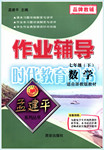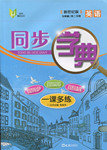题目内容
Speaking two languages rather than just one has obvious practical benefits in an increasingly globalized world.But in recent years, scientists have begun to show that the advantages of bilingualism (双语能力) are even more important than being able to converse with a wider range of people.Being bilingual, it turns out, makes you smarter.It can have a deep effect on your brain, improving skills not related to language and even protecting against a serious mental disorder in old age.
This view of bilingualism is different from the understanding of bilingualism through much of the 20th century.Researchers, educators and policy makers long considered a second language to be an interruption that prevented a child's school work and ability to think and understand things.They were not wrong about the interruption: there is ample evidence that in a bilingual \s brain both language systems are active even when he is using only one language, thus creating situations in which one system disturbs the other.But this interruption, researchers are finding out, isn't so much a disturbance.It forces the brain to solve inside conflict, giving the mind a workout that strengthens its thinking muscles.
The key difference between bilinguals and monolinguals may be more basic: a heightened ability to monitor the environment."Bilinguals have to switch languages quite often—you may talk to your father in one language and to your mother in another language," says Albert Costa, a researcher at the University of Pompea Fabra in Spain.
"It requires keeping track of changes around you in the same way that we monitor our surroundings when driving." In a study comparing German-Italian bilinguals with Italian monolinguals on monitoring tasks, Mr.Costa and his colleagues found that the bilingual subjects not only performed better, but they also did so with less activity in parts of the brain involved in monitoring, showing that they did better in it.
1.From the passage we can learn that experts used to believe that ______.
A.interruption forced a bilingual's brain to strengthen its thinking ability
B.a second language stopped children's studying as well as mental development
C.using two languages annoyed the children who have trouble in learning skills
D.language systems were busy in a bilingual's brain when he was using languages
2.The underlined word "switch" in Paragraph 3 probably means "______".
A.change B.use C.speak D.study
3.What is the author's attitude towards bilingualism?
A.Cautious. B.Doubtful. C.Concerned. D.Favourable.
4.Which of the following would be the best title for the passage?
A.How Bilinguals Use Languages
B.What Bilingualism Is Really about
C.Why Bilinguals Are More Intelligent
D.When People Learn a Second Language
1.B
2.A
3.D
4.C
【解析】
试题分析:近些年来,科学家开始证明具备双语学习能力者有着更多的优势。这种双语的使用除了使他们能与更大范围的人进行交流以外,还能够使人更加聪明、思维更加敏捷,而且还能够有效预防年老后的神经紊乱。
1.B细节理解题。文章第二段内容提到considered a second language to be an interruption that prevented a child's school work and ability to think and understand things在二十世纪一些研究人员和教育家都一致认为第二语言的学习会干扰儿童的学业、会影响思维和理解能力,答案选B。
2.A细节理解题。破折号在句中起解释说明作用,根据破折号后面—you may talk to your father in one language and to your mother in another language可以推断switch指的是两种语言间的转换,答案选A。
3.D 推理判断题。根据文章第一段开头Speaking two languages rather than just one has obvious practical benefits in an increasingly globalized world.以及下文中一些积极性词汇makes you smarter、makes you smarter可以判断作者对此持赞同态度,选D。
4.C主旨大意题。作者在文章开头提出说两种语言的好处,然后在下文分析为什么讲双语的人要比单一语言者头脑更为灵活,思维更加敏捷,由此推断C选项内容更能体现文章中心,答案选C。
考点:考查科学知识类短文阅读。

 作业辅导系列答案
作业辅导系列答案 同步学典一课多练系列答案
同步学典一课多练系列答案You shouldn’t keep silent when __________.
| A.speaking | B.spoken to | C.spoken | D.speaking t |